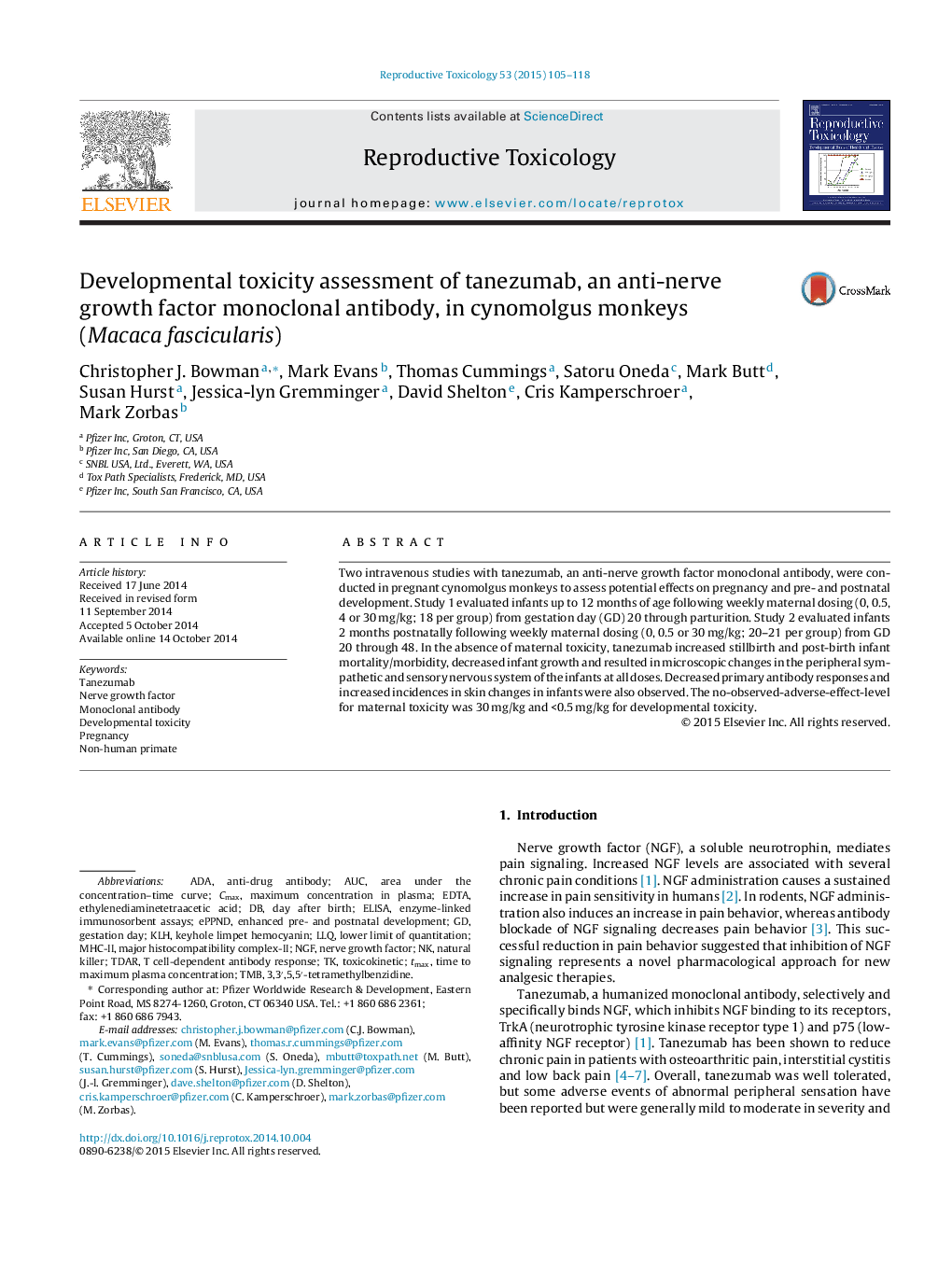| Article ID | Journal | Published Year | Pages | File Type |
|---|---|---|---|---|
| 2593477 | Reproductive Toxicology | 2015 | 14 Pages |
•Maternal tanezumab increased stillbirth and infant mortality/morbidity.•Maternal tanezumab decreased infant growth and primary antibody response.•Structural but not functional peripheral nervous system changes observed in infants.
Two intravenous studies with tanezumab, an anti-nerve growth factor monoclonal antibody, were conducted in pregnant cynomolgus monkeys to assess potential effects on pregnancy and pre- and postnatal development. Study 1 evaluated infants up to 12 months of age following weekly maternal dosing (0, 0.5, 4 or 30 mg/kg; 18 per group) from gestation day (GD) 20 through parturition. Study 2 evaluated infants 2 months postnatally following weekly maternal dosing (0, 0.5 or 30 mg/kg; 20–21 per group) from GD 20 through 48. In the absence of maternal toxicity, tanezumab increased stillbirth and post-birth infant mortality/morbidity, decreased infant growth and resulted in microscopic changes in the peripheral sympathetic and sensory nervous system of the infants at all doses. Decreased primary antibody responses and increased incidences in skin changes in infants were also observed. The no-observed-adverse-effect-level for maternal toxicity was 30 mg/kg and <0.5 mg/kg for developmental toxicity.
